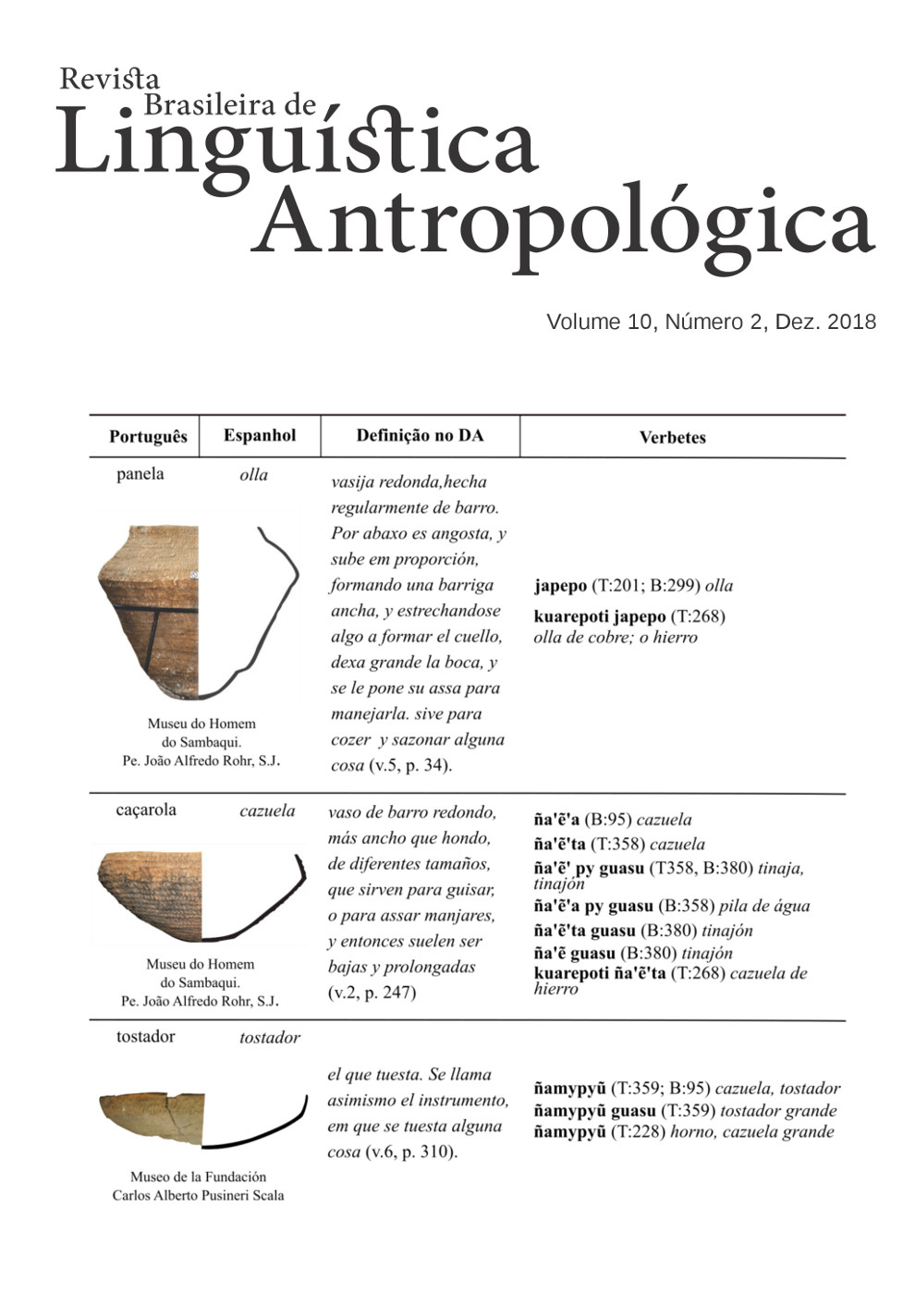Last Words of the Charrúa Medicine-Man, Sennaqueh: A New Hypothesis about their Interpretation
DOI:
https://doi.org/10.26512/rbla.v10i2.20942Keywords:
Charrúa. Medicine-man. SennaquehAbstract
In the present submission a new hypothesis is suggested with respect to the interpretation that has been given to the last words of the Charrúa medicine-man Senaqué since his death in Paris on July 26, 1833. The version initiated by the intern Camus, which has lasted until now, is understandable from a Parisian or French point of view, but does not seem to echo Senaqué’s origins, his character, his language, his trajectory and his beliefs, and it could possibly be the result of an honest but erroneous interpretation based on the phonetic transcription into French (i.e., code-switching between the word as uttered and the word as heard and decoded) by the French-speaking persons who were present at his death, and who were the only ones to hear him say them.
Downloads
References
Acenjo, D. A. 2017. La historia de los Charrúas llevados a Paris en 1833. http://www.enlacesuruguayos.com/Charruas.htm.
Antón, D. 1995. Piriguazú - el gran hogar de los pueblos del sur. Montevideo: Rosebud ediciones.
Antón, D. 1998. El pueblo jaguar: lucha y sobrevivencia de los charrúas a través del tiempo. Montevideo: Rosebud Ediciones.
Bakhtin, M. M. 2012. Problemas de la poética de Dostoievski. Vol. 3ra. edición. México: Fondo de Cultura Económica.
Campaña, M. 2004. “La guerra de los charrúas.” Revista Guaragua, 141-164.
Camus. 1833. “Les derniers momens de Sénaque le charrua.” Revue de Paris (H. Dumont) 5ème année (tome 5ème): 130-133.
Cantero, F. J., de Arriba, C. 1995. “El cambio de código: contextos, tipos y funciones.” Actas del Congreso Nacional de AESLA. Valencia, España: Asociación Española de Lingüística Aplicada (AESLA). 278-290.
Chavari, Le. 1833. “Pauvre sauvage!” Le Chavari 2ème année (266).
Cortés Moreno, M. 2001. “Fenómenos originados por las lenguas en contacto: cambio de código, préstamo lingüístico, bilingüismo y diglosia.” Wenzao Journal (Universidad Wenzao) 295-312.
De Brossard, A. 1863. Mes voyages avec le docteur Philips dans les républiques de La Plata. Tours, France: Mame et Cie.
Dumoutier, M. 1833. “Considérations phrénologiques sur les têtes de quatre Charruas.” Journal de la Société Phrénologique de Paris Tome II: 74-102.
Famin, M. C. 1840. L’Univers ou Histoire et description de tous le peuples…. Paris, France: Firmin Didot Frères.
García, B. 2010. Palabras charruas conocidas y su significado. Setiembre 17. http://caio.uy.over-blog.com/article-palabras-charruas-conocidas-y-su-significado-57204447.html.
International Phonetic Association. 1999. Handbook of the International Phonetic Association A Guide to the Use of the International Phonetic Alphabet . Cambridge, UK: Cambridge University Press.
Rivet, P. 1930. “Les derniers Charruas.” Revista de la Socidad de Amigos de la Arqueología (El Siglo Ilustrado) IV.
Rossi, J. J. 2002. Los Charrúas. Buenos Aires: Editorial Galerna.
Ruiz de Montoya, A. 1639. Tesoro de la Lengua Guaraní. Madrid.
Sabat Pebet, J. C., Figueira, J. J. 1969. «Las lenguas indígenas del Uruguay.» Boletín histórico del Estado Mayor General del Ejército 188-220.
Santine, X.-B. 1858. Seul! Vol. 2ème ed. Hachette et Cie.,.
Trelles, M. R. 1870. “Informe de P. Policarpo Dufo sobre lo sucedido en la entrada que se hizo en el año 1715 al castigo de los infieles.” Revista del Archivo General de Buenos Aires (Imprenta del Porvenir) Tomo II.
Walen, A. 1844. Usage et costumes de tous les peuples du monde. Bruxelles: Librairie Historique-Artistique.
Downloads
Published
How to Cite
Issue
Section
License
Copyright (c) 2018 Revista Brasileira de Linguística Antropológica

This work is licensed under a Creative Commons Attribution 4.0 International License.
Authors who publish in RBLA agree to the following terms:
a) Authors maintain the copyright and grant the journal the right of first publication, and the work is simultaneously licensed under the Creative Commons Attribution License, which allows the sharing of the work with recognition of the authorship of the work and initial publication in this journal.
b) Authors are authorized to assume additional contracts separately, for non-exclusive distribution of the version of the work published in this journal (eg, publish in an institutional repository or as a book chapter), with recognition of authorship and initial publication in this journal.
c) Authors are allowed and encouraged to publish their work online (eg, in institutional repositories or on their personal page) at any point before or during the editorial process, as this can generate productive changes, as well as increase impact and citation of the published work.







